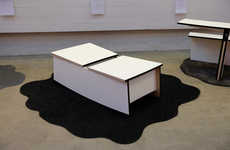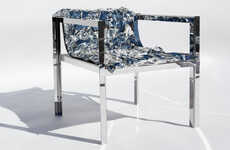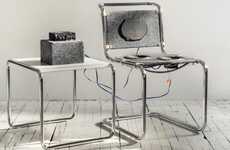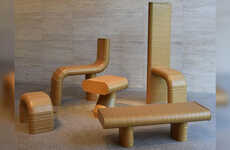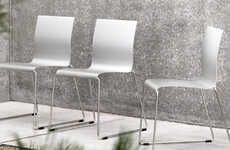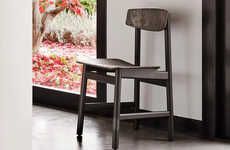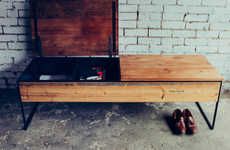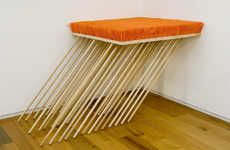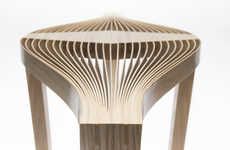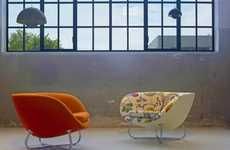
The Reinier de Jong STEEL Chair is Completely Upcycled
Gil Cohen — January 14, 2013 — Art & Design
References: reinierdejong & dezeen
Without actually being made out of the metal in its name, the Reinier de Jong STEEL Chair is a rustic piece of furniture that uses only wooden materials.
The appeal of the natural materials of the chair is only increased when you find out that the entire chair is made out of old broom handles. Taking tools such as rakes, shovels, brooms and other tools with wooden handles that have been used and discarded, the Dutch designer creates something new and once again, useful. He shaves down the handles, cuts them up to size, and cuts sides to make flat and comfortable seating surfaces.
The Reinier de Jong STEEL Chair also comes in a painted version.
The appeal of the natural materials of the chair is only increased when you find out that the entire chair is made out of old broom handles. Taking tools such as rakes, shovels, brooms and other tools with wooden handles that have been used and discarded, the Dutch designer creates something new and once again, useful. He shaves down the handles, cuts them up to size, and cuts sides to make flat and comfortable seating surfaces.
The Reinier de Jong STEEL Chair also comes in a painted version.
Trend Themes
1. Upcycling - The trend toward repurposing waste materials into products with a higher value is increasing in popularity, creating opportunities for companies to capitalize on this growing demand.
2. Rustic Furniture - The appeal of natural materials and simple, understated design is driving the popularity of rustic-style furniture, offering potential for disruption in the traditional furniture industry.
3. Circular Economy - The circular economy concept of keeping resources in use and waste out of landfills is gaining prominence, providing innovative organizations with an opportunity to create and market products that align with this framework.
Industry Implications
1. Furniture - Upcycling waste materials into furniture items can disrupt the traditional supply chain and manufacturing processes of the furniture industry, creating a new niche market for eco-friendly and unique pieces.
2. Tools and Hardware - Repurposing discarded wooden tools and hardware into furniture promotes sustainability and waste reduction in the home improvement sector, providing companies with opportunities to innovate and differentiate themselves from competitors.
3. Sustainability - Organizations that prioritize sustainable materials and production methods can disrupt multiple industries and appeal to environmentally conscious consumers who prioritize eco-friendly products.
4.7
Score
Popularity
Activity
Freshness

